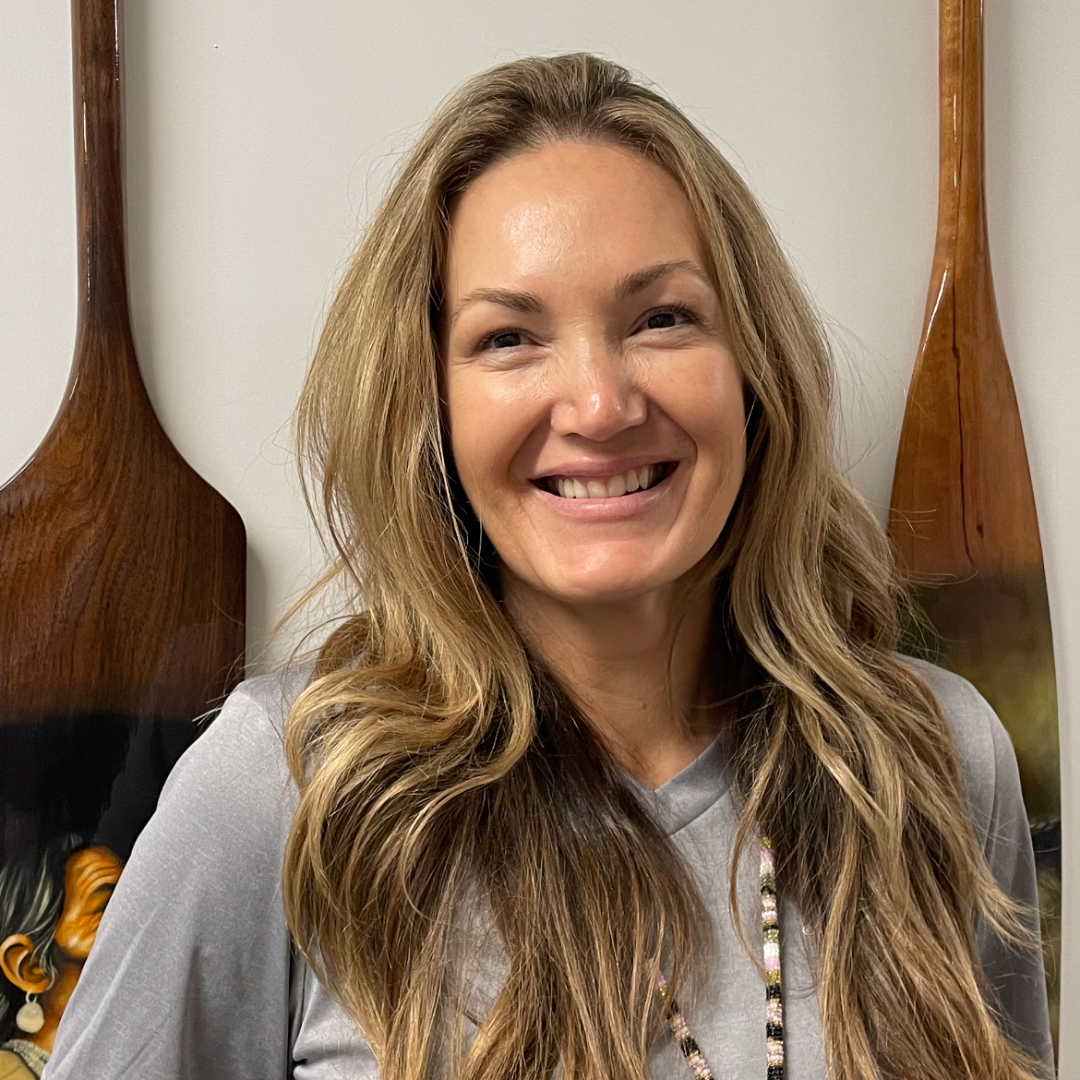Sarah Goodreau
Sarah Goodreau has always had a desire to help people and a special interest in supporting older Ontarians. Now known as the North Bay nurse who won the prestigious 2023 Nursing Now Ontario Award in the RPN category, she began her career on a completely different path — as a hairstylist.
“I’ve always been an ear for people,” admits Sarah. “I like to listen.” In her previous role, Sarah helped clients feel better inside and out by employing tactics such as personal attention and relaxing experiences to improve clients’ (hair) health and appearance, thereby boosting their sense of self-worth and well-being.
Once she felt mentally and physically prepared, she decided to embark on her true passion: nursing. “You need to be ready to offer yourself to be able to help people,” says Sarah, who realized over time that things didn’t faze her as much. “I was able to put my personal emotions aside.” This helped prepare her for her roles in long-term care (LTC), retirement homes and community care.
“I enjoyed [working in LTC and retirement homes],” she says. “It’s just what’s in my heart. I want to ensure [Older Ontarians] receive the care they need and deserve to have. But I’m happy being any patient’s support and helping them no matter what age they are.”
Originally from North Bay, Ontario, Sarah moved to Kitchener to attend Conestoga College, where she graduated as an RPN in 2012. She has been working at the North Bay Indigenous Hub (NBIH) (traditionally called “Giiwednomshkikiiwgamig”, meaning “Northern Medicine Lodge”) for just over four years and was the third staff member hired after the organization first opened its doors in 2019. The role was a perfect fit for Sarah, who is a member of the Temagami First Nation, which is a partner of the Hub. Sarah regularly visits the community to assist in running their Clinic Days.
Sarah was recently promoted to the position of Health Promotion Nurse at NBIH. Although she sees patients of all ages, she continues to work predominantly with older Ontarians to ensure they receive preventive care, including vaccinations, regular check-ups, counseling on important health topics, such as nutrition, routine and specialized screenings and education. Sarah also leads the NBIH smoking cessation program and will be participating in a health promotion workshop at the Centre for Addiction and Mental Health (CAMH) in Toronto next month.
“It just felt right,” says Sarah, beaming about her current role. “I couldn’t be happier with where I’m at now.”
For Sarah, the most rewarding part of her position is being able to connect and build trust with her patients and provide them with continuity of care and culturally sensitive care, which many of them have not had access to in the past.
The Hub takes a Two-Eyed Seeing approach to patient care, which includes providing both Western and/or Traditional medicine, depending on the patient’s preference. There are multiple teams and specialists at the Hub, including a dietitian, physical wellness practitioners, social workers, mental health specialists, the traditional team, internal medicine and more. Similar to when she was a hairstylist, Sarah knows it takes more than simply focusing on a person’s outside to improve overall health and wellbeing.
“To treat somebody, you need to treat the whole part of them, including the physical, emotional, spiritual and mental,” explains Sarah. “If you can’t reach all that, how are you going to treat someone fully?”
The NBIH has traditional land where they have a sweat lodge and a space to hold traditional ceremonies. Patients and employees are also able to perform the traditional ritual of smudging, which involves burning one or more sacred medicines — such as sage and sweetgrass — gathered from the Hub’s traditional land. This ritual helps the people performing the act to cleanse and rid themselves of negativity and start the day off in a positive way. Sarah explains that smudging also helps her cope with negative emotions or stress resulting from work.
“You need to have thick skin [to be a nurse],” she says. “You also need to be really empathetic and start every day as a new day; you can’t hold onto things. People are human; you don’t know what their traumas or history are, so you just have to be there for them. And when you start building that trust and those relationships with people, it’s so rewarding when they are able to be vulnerable with you. You’ll get that a lot in long-term care. But it can get heavy sometimes, so you have to remember to take care of yourself as well.”
